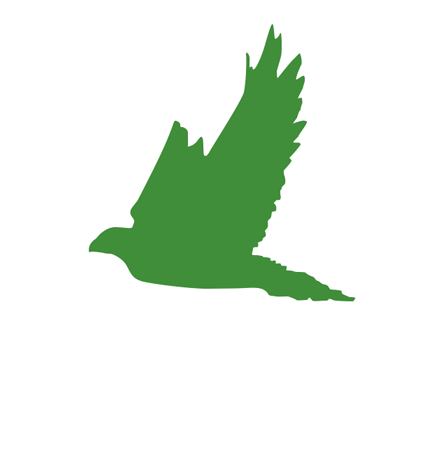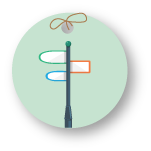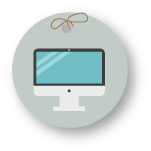The demand for Abu Dhabi City Municipality’s slaughterhouses has picked up tremendously with a massive footfall of customers benefiting from their high-class services; which conform to the world’s best specifications & standards. In the first week of the holy month of Ramadan this year, Abu Dhabi slaughterhouses have processed more than 25,222 carcases thanks to the premium services on offer to the public. The number of slaughtered animals exceeded expectations with an increase of 12.6% compared to 22,396 carcases processed in the first week of Ramadan last year. In the first week of this Ramadan, Abu Dhabi abattoirs processed 14,127 sheep, 10,368 goats, 412 cows, and 313 camels, making a total of 25,222 slaughtered animals. Work is progressing in Abu Dhabi abattoirs in full swing as per the best hygiene standards in line with the Municipality’s keenness to satisfy & delight customers during the holy month of Ramadan.
The demand for slaughtered animals increases during Ramadan, and in order to provide such superb services, the Municipality, through its partners, provided integrated slaughterhouses at world-class standards in terms of equipment, sustainable infrastructure and human cadres. The civic body also offers veterinary services by deploying specialised teams to perform veterinary tests of animals before and after slaughter. The Municipality also monitors meat safety in compliance with the local & international standards; which fits well with the Municipality's priority of excelling in community services and enhancing the quality of life. Abu Dhabi slaughterhouses continue to offer services from 6 am to 6 pm throughout the week during the holy month of Ramadan. The Municipality added a third night shift throughout the holy month in all Abu Dhabi slaughterhouses namely Abu Dhabi Public Slaughterhouse, Baniyas Slaughterhouse and Shahama Slaughterhouse. The night shift, which starts from 10:00 pm to 1:30 am (after midnight) is intended to ease fasters' suffering, avert crowdedness, and serve all community segments. To further delight the public, the applicable slaughtering charges remain the same: AED 15 per goat/sheep, AED40 per calf/young camel and AED60 per older cow/camel. These fees include cutting the slaughtered sheep or goat into four pieces, and camels and cows into 6 to 8 pieces, depending on the request of the customer. An additional AED 10 is added for personalised cutting per sheep/goat, AED 60 per calf/young camel, and AED 100 per older cow/camel. The Municipality renews its commitment to offer the best services at the same fees. To protect consumers' rights, the price list is affixed to the cashier's windows. The Municipality still offers the service of home delivery for interested parties and sends carcases chilled boxes to prevent damage when travelling to remote areas. All municipal slaughterhouses adopt stringent health and safety measures including the inspection of livestock at the markets to ensure that animals are free from contagious diseases and offer veterinary consultancy to the customers.Extensive cleanup and disinfection are maintained at all slaughterhouses to the best health stipulations on a daily basis before and after slaughtering so that slaughterhouses remain ready for the next day. Slaughtering waste is disposed of properly to avoid environmental pollution. Abu Dhabi abattoirs witness a steady increase on a yearly basis in the number of processed carcases during Ramadan without compromising the veterinary inspection. 70,000 slaughtered animals were inspected in 2016 compared to 40,000 during the same period in 2012. During this Ramadan, as many as 136 carcases and 485 kilogrammes of intestines were found unfit for human consumption and were therefore destroyed. The numbers of slaughtered animals processed by Abu Dhabi abattoirs showed an upward trend thanks to the premium services which measure up to the customer expectations. In 2012, Abu Dhabi abattoirs processed 39326 goats & sheep, and 1368 cows & camels; compared to 46238 goats & sheep, and 1508 cows & camels in 2013; 55201 goats & sheep, and 1948 cows & camels in 2014; 63081 goats & sheep, and 1901 cows & camels in 2015; and 71161 goats & sheep, and 1889 cows & camels in 2016. This year witnessed a significant increase of about 60% in local carcases processed by Abu Dhabi abattoirs. The Municipality called upon the public to adhere to the health guidelines regulating carcases during Ramadan and not to slaughter animals in residential areas or any places other than the licensed abattoirs. The Municipality reminded the public of the importance of veterinary inspection to avoid diseases and to seek advice from the onsite veterinarian about all issues relating to their health.

 Nearby Happiness center
Nearby Happiness center  Converting PDF files to accessible HTML
Converting PDF files to accessible HTML Probelm Opening files?
Probelm Opening files? knowledge Center
knowledge Center MS Word, MS Excel,PDF Files
MS Word, MS Excel,PDF Files e-Services
e-Services Service Directory
Service Directory  Change Screen Resolution
Change Screen Resolution Find Information
Find Information